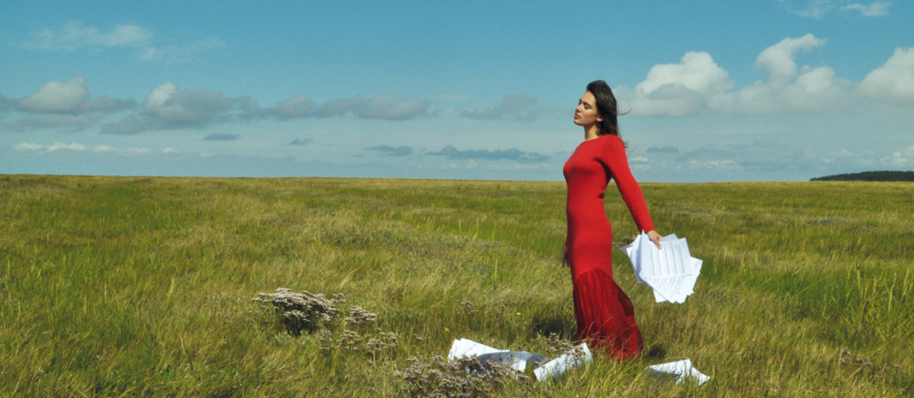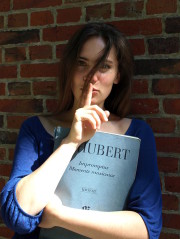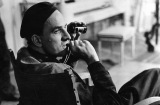Reviews
The carefully arranged programme captivates both through musical intelligence and technical perfection. Lucy Jarnach's recording of Ravel's 'Gaspard de la nuit' are not exercises in rhythm or studies in sound, it is rather music that is: winning, resounding, agile, beautiful in its sound and full of drive.
In 'Mit Trommeln und Pfeifen' Jarnach intensifies the sound mechanically in order to later contrast it with the 'Musettes' which present themselves both vibrant and supple. In 'Klängen der Nacht' she creates not only a certain atmosphere but also a kind of space in which the musical figurations seem to find their place.
The recording of the 'Drei Klavierstücke op.17' of her grandfather Philipp Jarnach might be interpreted as a respectful duty. However, this is not the case: Lucy Jarnach intensifies her grandfather's impressionism by performing it in an expressionist manner, or, to put it differently: musical expressionism gets something of an impressionistic flair.
Whoever succeeds in coping with such a complex programme should seek further challenges.
Giselher Schubert, Fonoforum
...It is already in 'Ondine' that Jarnach gives evidence of her very personal expression by setting the tempo softly into line with her proper view of things, a playing both fascinating and sensual. Jarnach calls the listener's attention to her thrilling and extraordinary performance... In Bartok's 'Im Freien' she concentrates all her efforts: strong accents, clear and styled language, elaborated rhythm. Above all it is her individual way of setting musical accents with which she creates her personal expression. With this she effectfully reaches the listener's attentive ear. A convincing debut..
Carsten Dürer, Piano News
Lucy Jarnach is one of the few to have seized so clearly the fantastic character of the 'Gaspard de la nuit'. This is not only sought interpretation with which the pianist wants to draw attention, this is achieved pianistic art, the art of 'painting colours in sounds', the art of dynamism and drama. Structuring so effectively at the piano, playing so suggestively and in this way captivating the listener – this means being a musician of exception. Phenomenal!
A magnificent discovery are the 'Drei Klavierstücke' by Philipp Jarnach, the pianist's grandfather... Lucy Jarnach transforms Bartok's 'Im Freien' dramatically and seizingly. She connects sound and remembrance, thus rendering 'Im Freien' physically alive with all the energy emanating from Bartok... Thus this survey 1908-1926 is a compact programme which – with its forceful interpretations and expressive power – makes it a first-class experience.
Remy Franck, Pizzicato Super Sonic Award, July 2013
See full review: http://www.pizzicato.lu/frei-im-freien-und-auch-anderswo/
Ravel's 'Gaspard de la nuit' doesn't only sound brilliant, but also disturbing – there Lucy Jarnach seems to have read the notes and, what is more, the literary models. How does she manage when she, in Bartok's 'Im Freien', precisely reproduces the notes and at the same time leaves an aura of independence as if it were the landscape itself that creates the sound? Her debut-CD seems to appear at the right moment. A must-have!
Wiener Zeitung, May 2013
With 'Gaspard de la nuit' every pianist can prove himself to be the master of his art – this is one of the most difficult pieces in musical literature. That is what she does, young Lucy Jarnach from Hamburg: playing confidently, without effort, finely structuring – like in the other pieces on this AVI-CD, for instance the pieces opus 17 of her grandfather Philipp Jarnach, a pianist and composer wrongly forgotten. Lucy Jarnach does her best with this contribution to make him reappear in the public's mind.
hr 2, May 2013
The fact that it is the granddaughter of the composer who interprets his music isn't necessarily an advantage – simply because of a possible lack of distance. Far from it: Lucy Jarnach's interpretation is not a rigid admiration of an idol but a warm and virtuoso approach, at times with a twinkle in her eye. She fully performs the lively drive, illuminating the great tonal panorama in detail. The pianist, aged 26, combines the compositions of her grandfather with Ravel's 'Gaspard de la nuit' and Bartok's cycle 'Im Freien' – a fine choice because it is only in this combination that one notices how much of French nobleness and pleasure in folkloric playing can be found in Jarnach's music...
Deutschlandradio Kultur, April 2013
Translation: Michael Sackarndt








